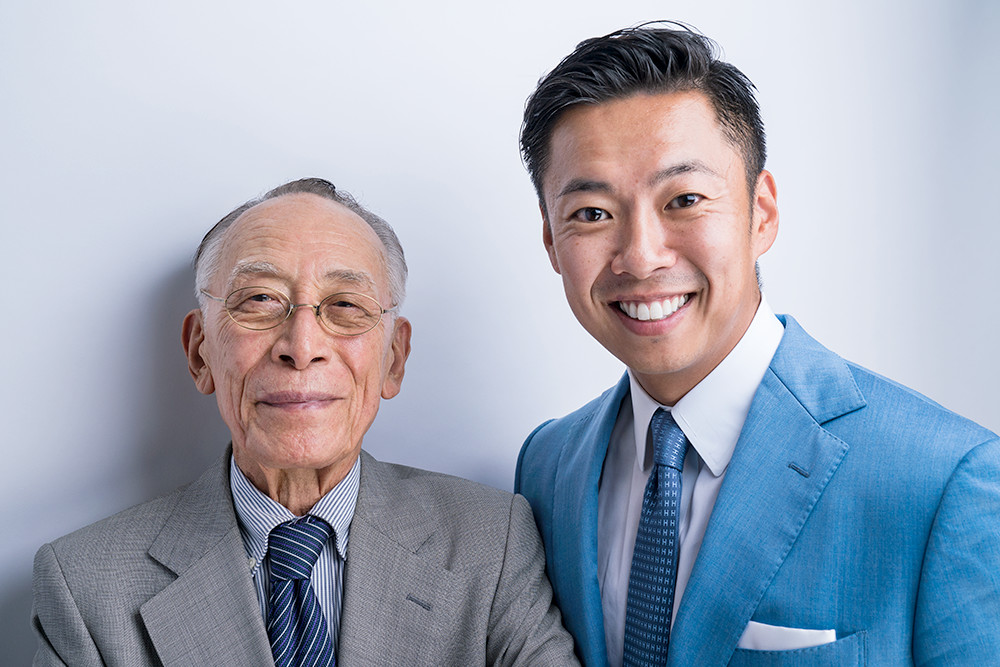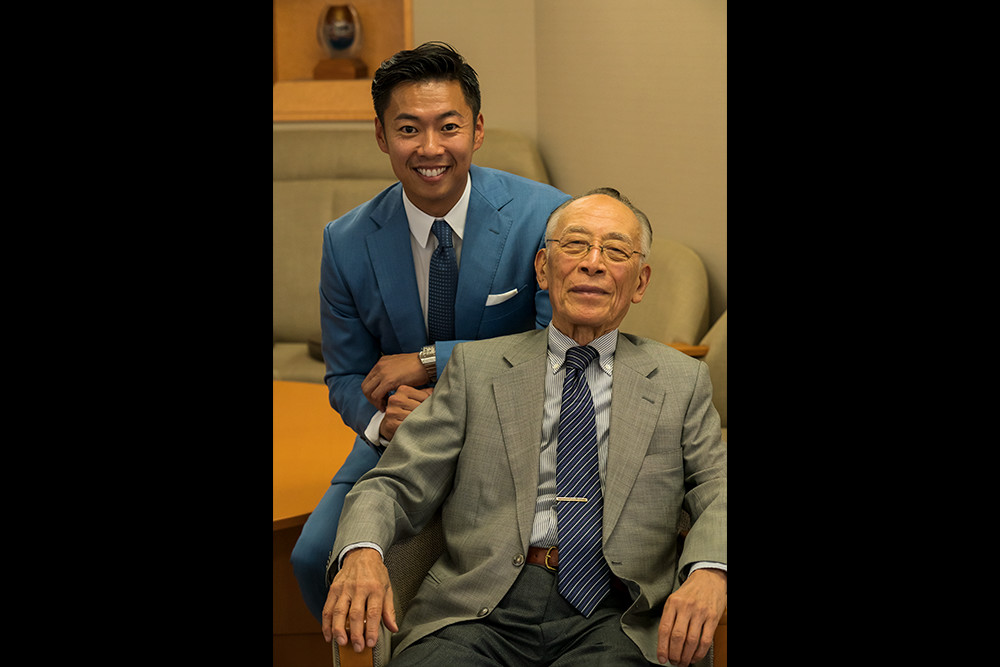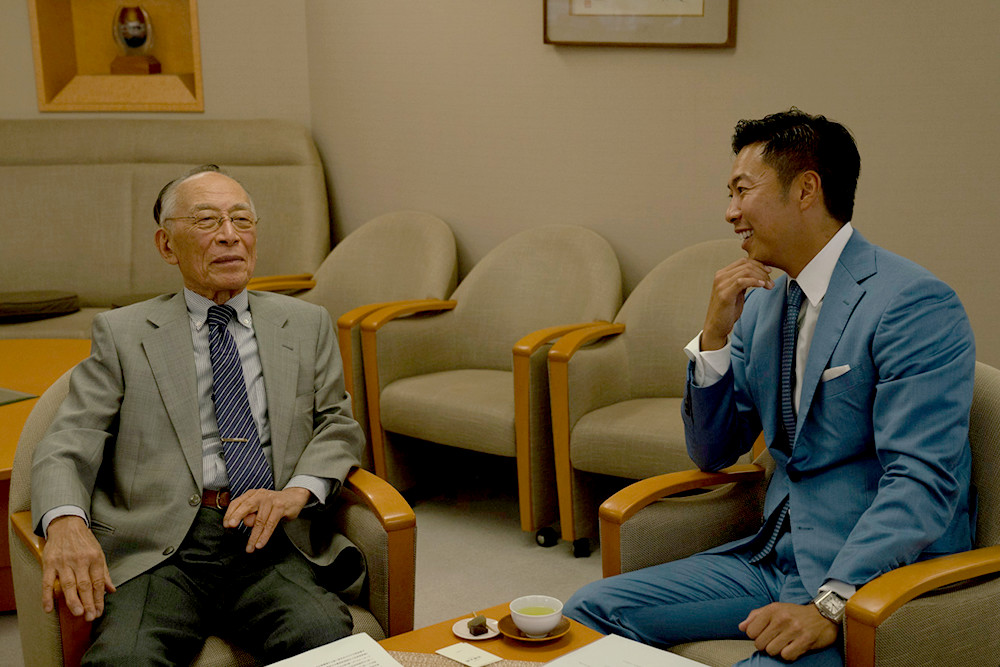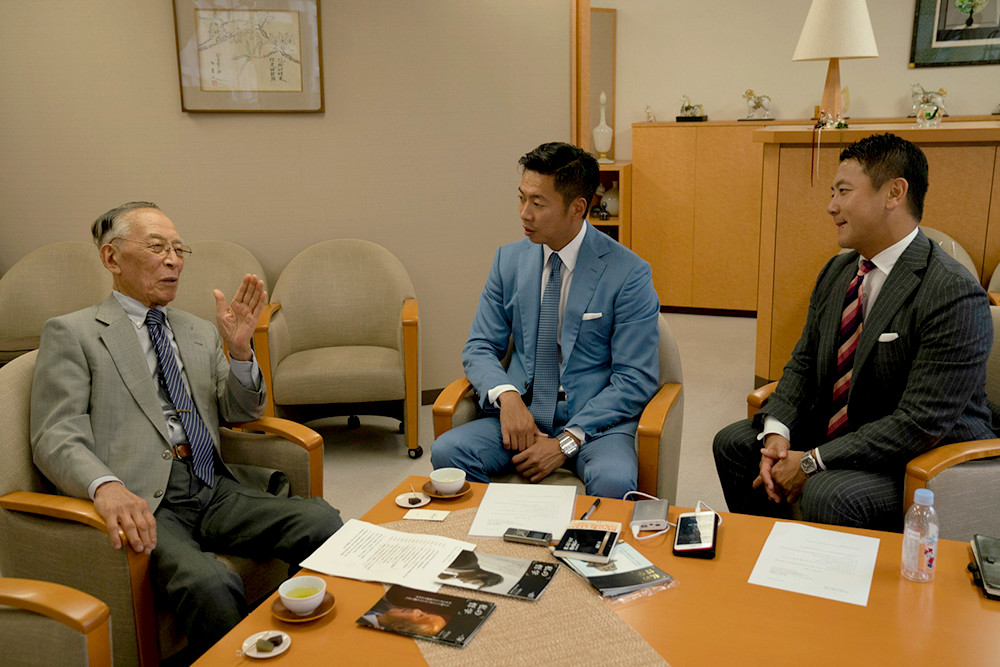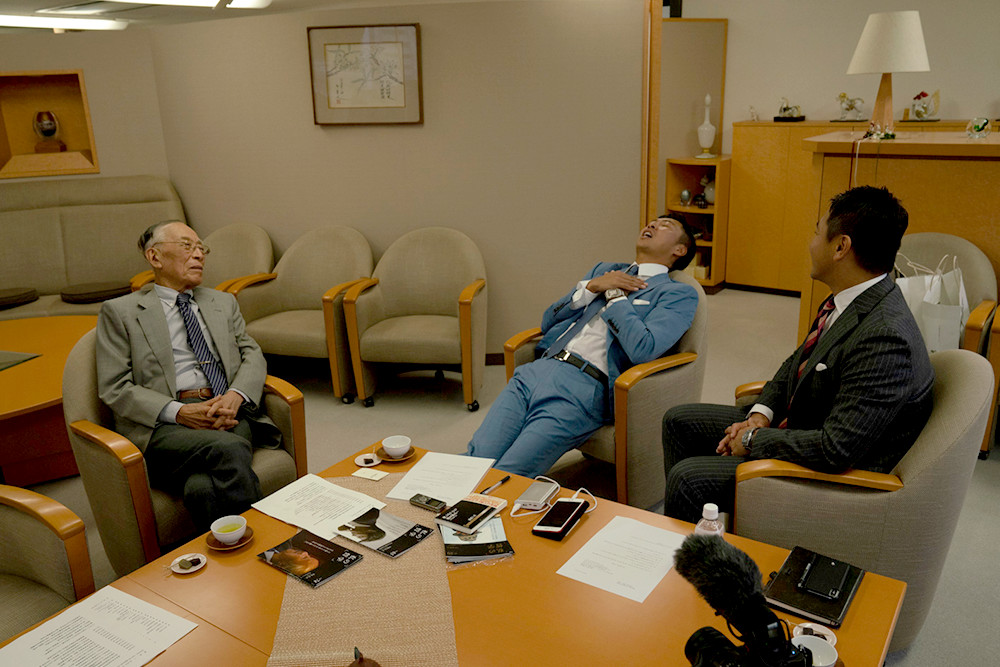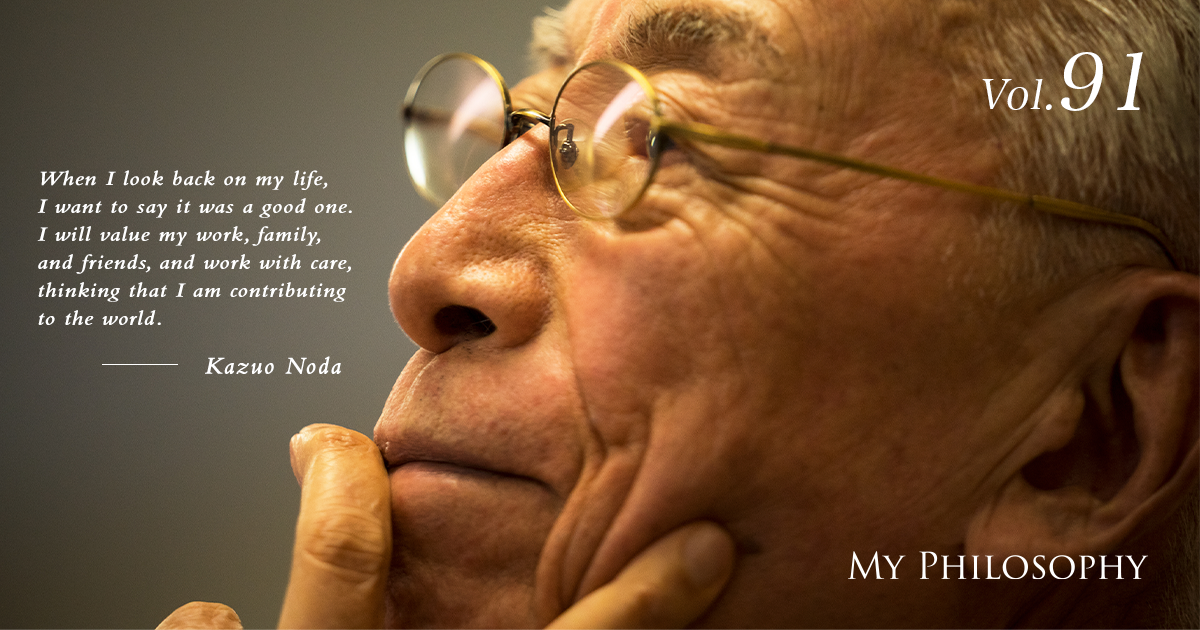
Mr. Kazuo Noda, who has been involved in the translation of Peter Drucker's "Practice of Management" and the establishment of numerous universities and research institutions, specializes in corporate management theory. At the age of 91, what are his current thoughts?
Profile
Vol.91 Kazuo Noda
Honorary Chairman of the Japan Research Institute, a general incorporated foundation | Honorary Chairman of the Social Development Research Center, a general incorporated foundation | Honorary President of Tama University | Honorary President of The Graduate School of Project Design
Born in Aichi Prefecture in 1927, he graduated from the Department of Sociology at the University of Tokyo. He served as an assistant professor and professor at Rikkyo University, president of Tama University from 1989 to 1995, a graduate school professor at Tama University, and president of Miyagi University from 1997 to 2001. At Tama University and Miyagi University, both of which he was deeply involved in establishing, he served as the founding president. He also played a significant role in the establishment of many institutions, including the Japan Research Institute, laying the foundation for their inception. His major works include the translation of "Modern Management (Gendai no Keiei)" by Peter Drucker (Jiyu Kokuminsha), and writing "The Philosophy of Founding a Business (Sogyo no Shiso)" (Shimizu Kobundo), "My University Reform (Watashi no Daigaku Kaikaku)" (Sanno University Publishing Department), "The Power to Create the Future: A Guide to Manufacturing" (Mirai wo Tsukuru Chikara ‘Monozukuri no Susume’) (Kodansha), "If You Are Frustrated, Age! (Kuyashi katta ra Toshi wo Tore)" (Gentosha Goethe Business New Book) among many others.
My Respected Father
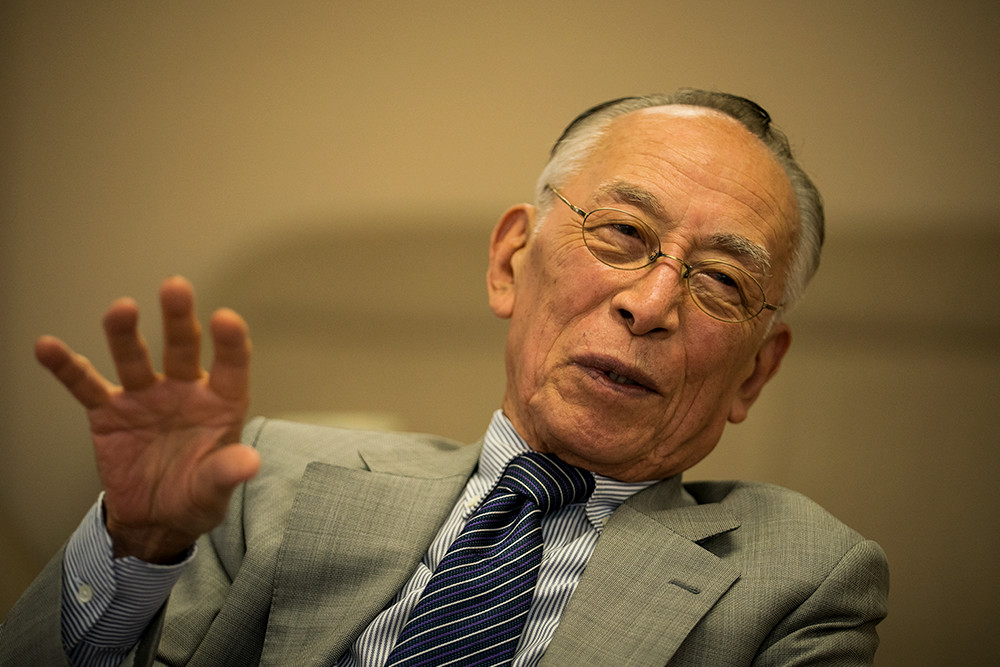
I have profound respect for my father, not only as an individual but also as a pioneer in aviation technology in Japan. When the Wright brothers first flew, my father, then a middle school student, asked his teacher how it was possible for humans, who are not birds, to fly.
The teacher, unable to answer and probably finding the question bothersome, simply told him to go to university. Since there were no aviation departments at the time, my father enrolled in the Department of Physics at the University of Tokyo and, after graduating, went to study in Germany, becoming a pioneer in Japanese aviation technology.
“Polish your individuality and don’t complain” was a phrase my father often said. Whenever I seemed on the verge of complaining, my wife would quickly remind me, “Your father would scold you for that.” Compared to my father, I think of myself as a lax parent. Yet, because all my children affectionately look up to me, calling me “Dad, Dad,” I try to emulate my father and act in a fatherly manner.
Family Is Life Itself
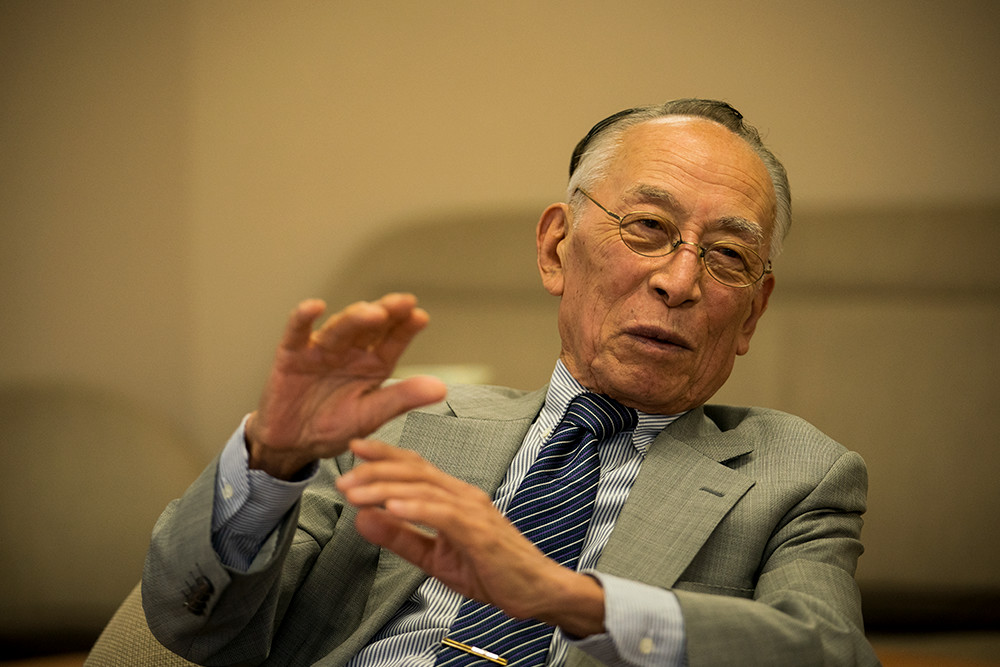
I have three sons and one daughter, and in our house, we never had a strict educational policy. Everyone grew up freely and unbound. The eldest and second sons joined large companies and work diligently, while the third son left the company he joined to start his own business, and he has been successful. Work can be tough, but as long as you find it interesting, success can be found in any profession. Reluctantly working is not good. In this regard, especially the third son embodies the Noda family’s ethos.
I always try not to show my children when I’m tired. In other words, when I’m not feeling well, it could negatively affect the children through my actions and words. My father, born in the Meiji era, was always properly dressed and conducted himself well; I never saw him disheveled.
Being with my family is indeed my first priority in life. Family is indeed first in life. A happy home life coincides with successful work life. Therefore, work is obviously important too. If work isn’t going well, it’s impossible to enjoy a happy home life. Family is life itself. Having been married for 60 years, I am always grateful to my wife, who has steadfastly managed our household.
Business as a Contribution to Society
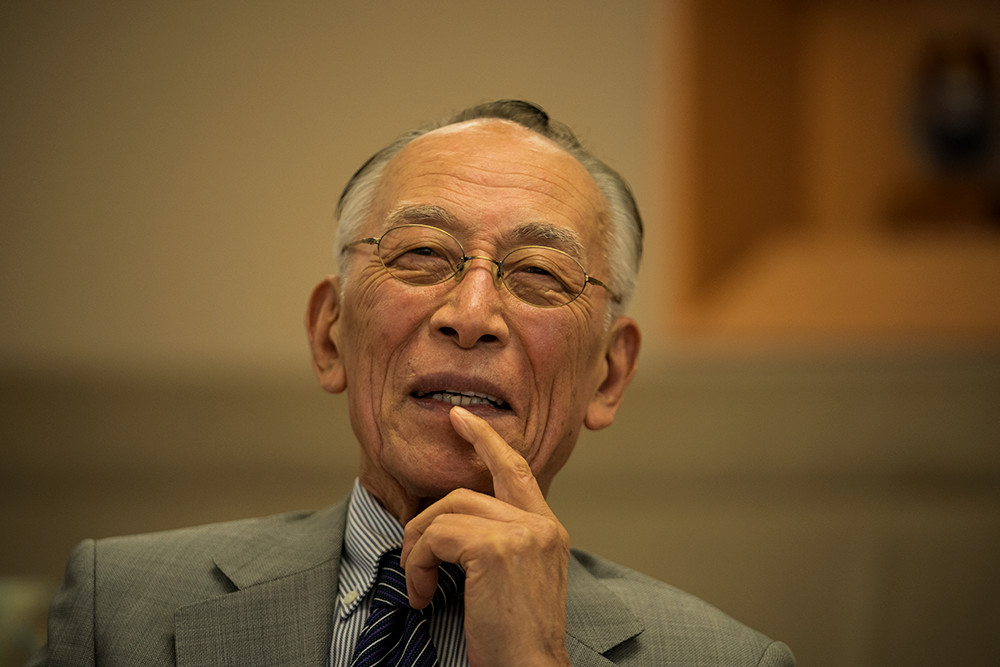
I have known Masayoshi Son of SoftBank since he was about 20 years old. Although I believed he would be successful, I never anticipated the extent of his success. From the time he came to me, he had very lofty ideals, or rather, grand ambitions. To realize his ambitions, he must have gone through a lot of hardships. The things created through struggle leave a lasting impression. When remembered, they give you strength. In that sense, completing something through hard work is truly remarkable.
Success in business is not just about amassing wealth. The more successful you become, the greater the impact of any incidents or scandals. The larger the business, the stronger its social influence. Therefore, you should not wait until your influence has grown to start doing something. If from the inception of your business, you aim to contribute to society through its success, society will support you when necessary.
Success Becomes Apparent Later
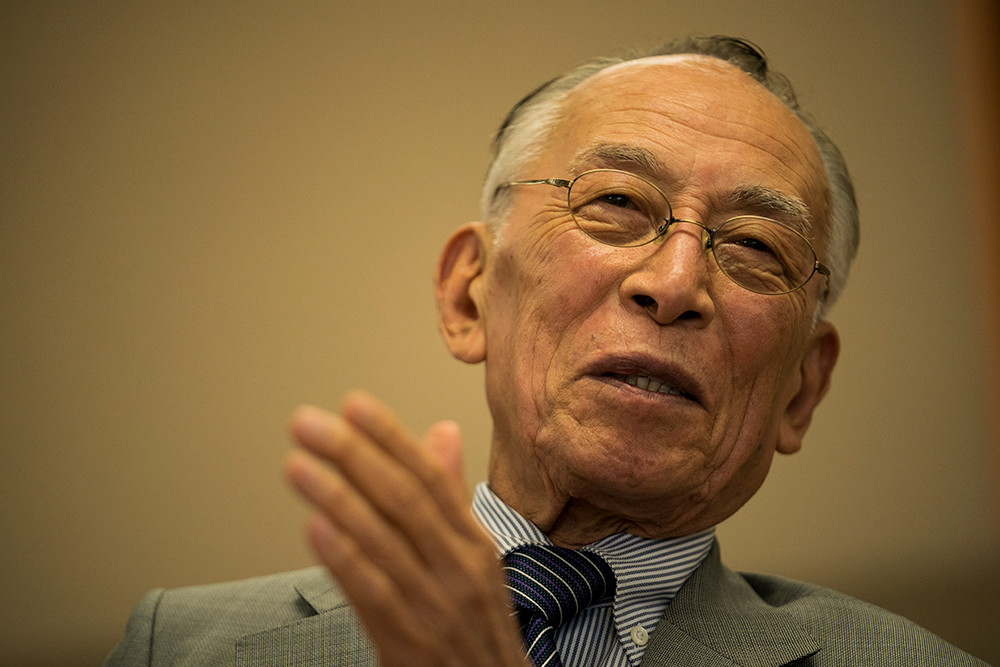
People who seem to lead unremarkable lives may achieve commendable results when they reach their 40s or 50s. Since there’s quite a bit of individual variation in how success is achieved, it’s probably best not to generalize one’s own experiences. To put it more extremely, some people don’t find their moment until their 60s or 70s.
Personally, I never dreamt of becoming a professor or the founder of a university in my youth. Inspired by my father, I wanted to pursue a career in aviation technology, but my timing to advance to university coincided with the end of the war.
Due to the occupation policies, the General Headquarters (GHQ) prohibited the manufacturing and possession of aircraft in Japan, leading all Japanese universities to abolish their aviation departments. Under occupation, it was impossible to properly manufacture anything, prompting many science students to switch to the humanities. In the chaos following the war, it seemed like there were no options for the future. Looking back, I realize I’ve lived through an era marked almost entirely by the Second Sino-Japanese War and World War II.
The biggest influence in my youth was the book “The Protestant Ethic and the Spirit of Capitalism” by Max Weber. It’s a wonderful book that truly captivated me. Without reading his work, I might not have been able to change my own way of living. Now, at 91, looking back, I feel my life has turned out well unexpectedly. I have no regrets about the decisions I’ve made over time. Today is the result of the actions I’ve taken. Whether I was lucky or not is a matter of hindsight. Whether or not I succeeded only becomes clear when looking back on the past.
A Satisfying Life
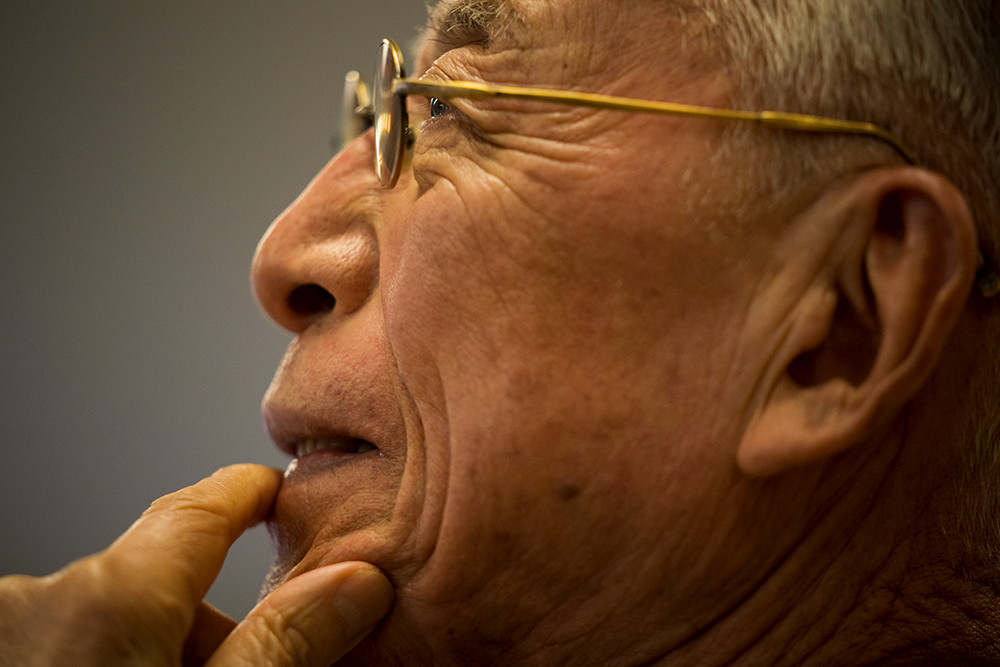
I would have no regrets if I were to die tomorrow. My life has been fulfilling and enjoyable. Just making a pained expression can turn life into a negative experience. Even if in pain, it’s better to smile and entertain others. I don’t know if I’ll meet my deceased father in the afterlife, but if it’s uncertain, it’s happier to believe that we will meet. I think people who believe that their wishes will come true lead more blessed lives than pessimists.
When I was in elementary school, I told my father about a boy who was being bullied. He asked me if I had helped the boy, and when I said I hadn’t, he scolded me. The next day, I helped the boy who was being bullied again. When I came home and told the story, my father said, “…Well done. Don’t ever forget today…” and patted my head. I still remember that moment very clearly. That was the only time he ever patted my head. If I meet my father in heaven, I’d like to report on the work I’ve done in my life and have him pat my head again…
This was the 91st interview, featuring 91-year-old Mr. Kazuo Noda. “Decision and Action in Your 40s DOers,”was wonderful.
What struck me in the interview with Mr. Noda was his philosophy of “not going home when in a bad mood, staying away from the house.” Being in a bad mood doesn’t contribute positively to those around you. Hearing about the episodes of founding numerous universities and his attitude towards work, I was reminded that “sincere action” opens the way forward. Thank you Mr. Noda for your precious time.
October 2018, at the Japan Research Institute




